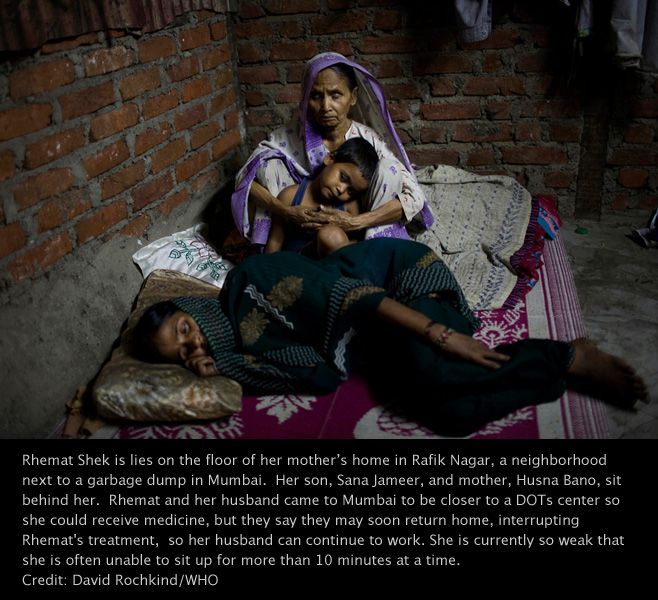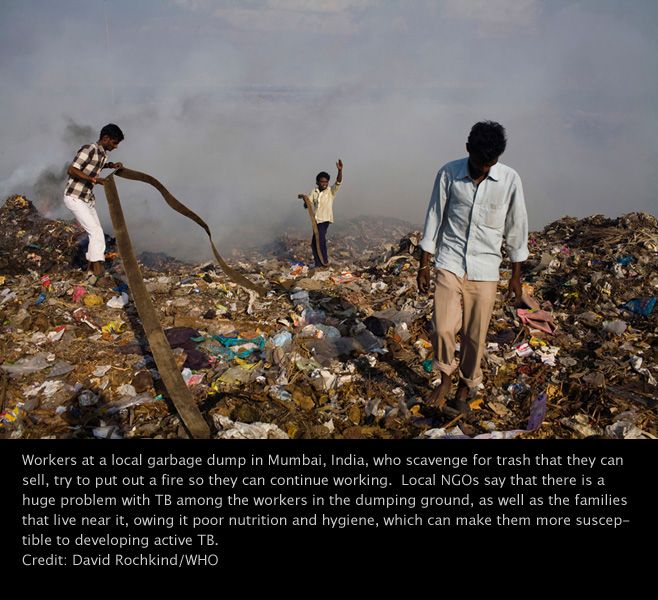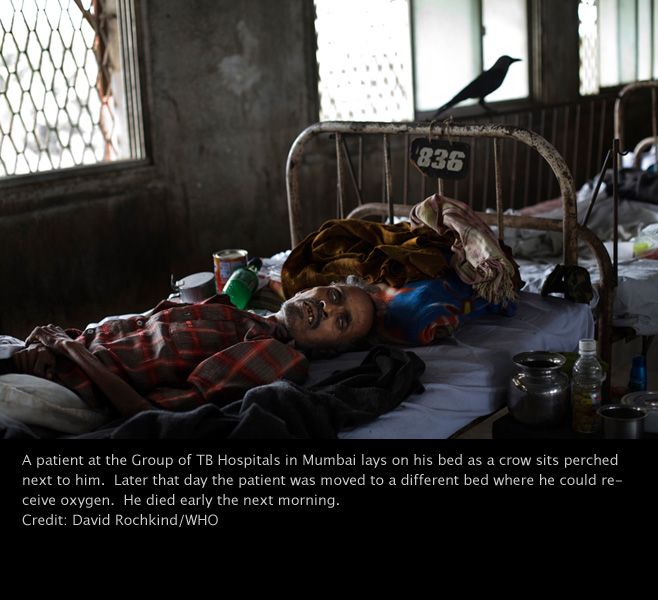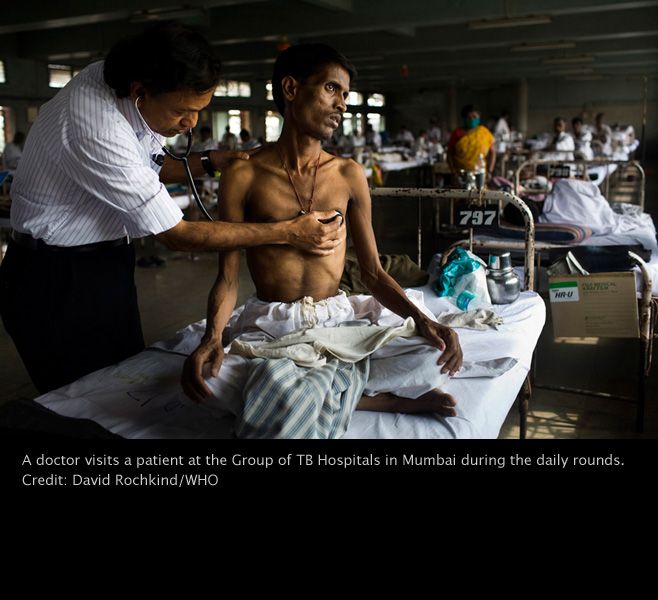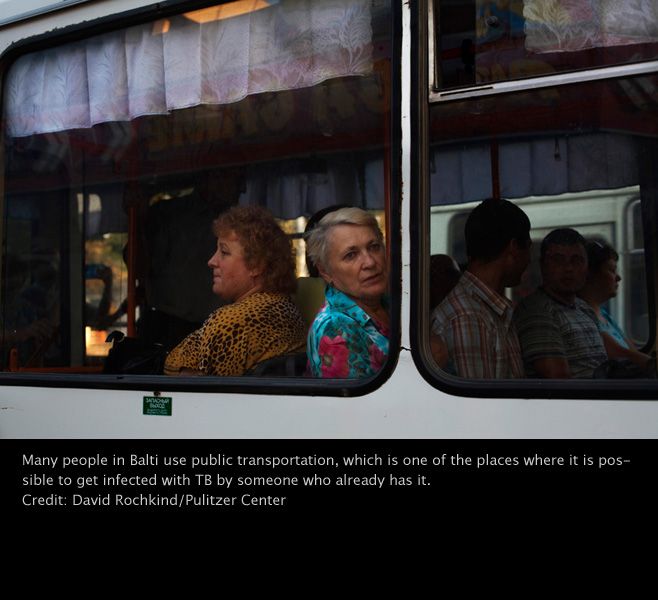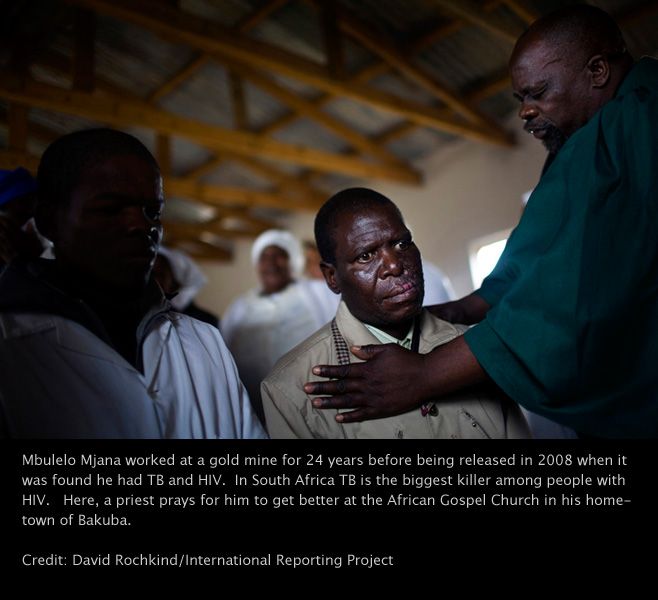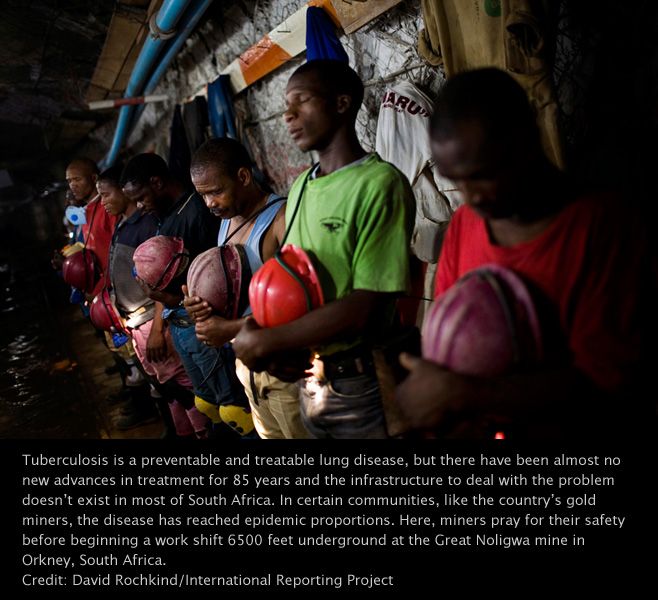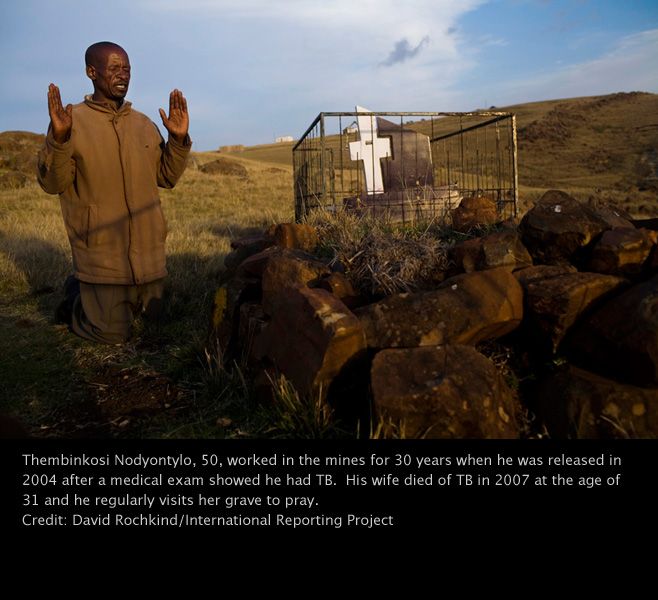For the past three years, photojournalist David Rochkind has documented the devastating effects of tuberculosis around the world.
His reports and photographs from South Africa, India, and Moldova have been published widely in the media, but he wasn’t happy with the presentation. “I thought that in order to really understand the disease, and the obstacles it has in treatment and prevention, there really needed to be a more engaging, intense platform to present the work.”
So with support from the Pulitzer Center, he built the website TB Epidemic, an educational portal that teaches not only about tuberculosis, but also how, and why, to start advocacy campaigns. Rochkind hopes it will help students, health centers, and communities learn about tuberculosis, and how to advocate for change with social issues.
In honor of World TB Day, and the launch of TBEpidmic, we recently sat down with Rochkind to learn more about the website, and discover why he'll be speaking before a congressional panel on March 24th.
This project started out as a series of photo essays, but now you have this website, Epidemic TB. How did that happen?
I didn't want just an online slideshow where people could quickly flip through it and think "oh those are sick people in another country," feel something sad and then be done with it. I really wanted to create something that allowed people, or forced people in a way, to engage with the themes of tuberculosis, think about what tuberculosis as a really specific disease means and how it affects communities. So I started thinking about how to do that, and I thought that an educational website was the ideal way to do it, and that it would be a website that could be used by any population looking to learn about tuberculosis, or any community center or health center that had the need to teach about tuberculosis.
So how can people get engaged with the website?
You can look at the introduction section and that gives you the basic facts about tuberculosis, where it is and what it is. And then there are case studies of the three countries I've been to, that sort of talk about some of the broad themes that are involved with TB, like access to health care, education, importance of treatment, stigma related to the disease. The idea is that people have all of these different entry points depending on what their preference is….
At the end of all that, we've created an Action Packet that teaches people about advocacy...There are sections about what it means to write a letter to the editor of your newspaper and why you might do that, or how you write a letter to your congressperson and why you might do that. How do you fundraise and how do you find organizations to fundraise for? The idea being that you look at the website and all the different themes it presents, and if you're moved to do something more, you also have a packet that provides you with tools to get involved outside of the classroom, or outside of the house.
We didn't want to advocate any specific points in part because we want it to be that if you look at the website and you're moved by it, but there's another issue that you are more personally connected to, you still have this action packet that teaches you advocacy tools for any issue that you're interested in.
What do you hope for the website?
My hope is that it gets into a lot of schools. Right now it's just in English, so we're targeting schools in the US and other English speaking countries. I see this as an opportunity to educate our future leaders about what tuberculosis is and why public health is important in general, and what we can do to combat this problem. Also, ideally, different health centers an NGOs are able to use it as a teaching tool for their staff, their patients and their community, so it can be something that doesn't just help raise awareness about TB in general, but also goes to the direct populations that are affected by TB, which do exist in the United States as well.
You have this website which is incredible for helping people and communities to learn about TB, but government investment is obviously also important. Is there any component to your work that targets policy makers?
This Thursday, there's a congressional briefing on TB that I'll be a part of. I'll be on the panel with experts in TB...and I'll have an opportunity to talk about some of the personal stories that I've witnessed, and frame TB as something that actually does affect people in very real and serious ways. It's not just a disease that can be defined by statistics and incidence rates, but it's really a disease that has far reaching social and economic consequences for any community where it's found.
You mentioned that this started because you were interested in focusing on health in migratory groups. Why were you interested in focusing on global health in the first place?
In all of my travels, when I'm working on stories and looking at different social problems, there are various themes that always rise to the top. One of them is health and one of them is education. Those two things always seem to be obstacles in the development of communities and the success in people's personal lives. I was interested in health in general because it's an issue that's relateable globally. But it's also something that really handicaps the development of certain populations as well. In many ways, if people are healthy, they're much more able to take advantage of the opportunities that life has to offer. If they're not healthy, no matter what else happens in their community, it can be difficult to move forward. Health is something that often affects already vulnerable populations.
Do you plan to continue documenting TB?
I'd like to continue documenting TB. It's currently a problem, it's going to be a problem for many more years. It's also currently underreported, and probably will be underreported for many more years. I'd like to continue working on it and reporting on the successes and failures and challenges that will be present in the coming years.
Rochkind's reporting was supported by grants from the International Reporting Project, the Pulitzer Center on Crisis Reporting, and the WHO Images to Stop TB award, amongst others.
Rochkind's images of TB will be on display at Monmouth University in New Jersey from April 5-30, 2011
